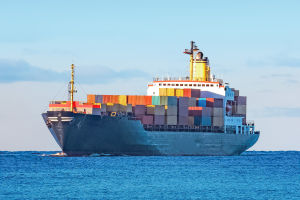The oceans are our planet’s life support system, producing half the oxygen we breathe and housing 97% of Earth’s livable habitat.
They are home to more than 700,000 known marine species, with scientists estimating that millions more remain undiscovered.
Beyond their biodiversity, oceans are essential to human health, providing food, livelihoods, and cultural connections for billions of people globally. For Pacific Island nations, ocean health is directly tied to food security and economic survival, while Australia boasts one of the most biodiverse ocean territories on the planet.
The Urgent Need to Protect Marine Ecosystems
Marine ecosystems are under immense pressure, facing threats like overfishing, pollution, and climate change. High-seas fishing, once rare, now depletes fish populations and damages habitats. Industrial pollution, plastic waste, and warming seas compound the crisis.
If left unchecked, these pressures could lead to the collapse of marine ecosystems, putting life on Earth at risk. Oceans regulate our climate, produce oxygen, and store vast amounts of carbon. A dying ocean would make the planet of these critical functions, threatening food supplies and countless other life-giving processes.
A Vision for Sustainable Oceans
Imagine a future where small-scale, sustainable fishers have greater rights and access to marine resources, supporting their communities while limiting the environmental impact of industrial fishing. A world where at least 30% of the oceans are protected by 2030, creating safe havens for marine life to recover and thrive, building resilience against climate change.
To achieve this, a Global Ocean Treaty is essential. With the UN set to decide on ocean protection measures, the time to act is now worldwide, including Australia and Pacific Island nations, must unite to push for this treaty to safeguard the oceans for future generations.
The Threats Facing Our Oceans
Overfishing and Industrial Fishing: Unsustainable fishing practices have turned the seafood industry into a destructive race for profit.
Pollution: Billions of tons of plastic waste and industrial runoff pollute marine environments, affecting species and habitats at all levels.
Climate Change: Warming seas, ocean acidification, and rising sea levels are causing unprecedented harm to marine ecosystems, leading to coral bleaching, habitat loss, and species extinction.
A Path Forward: Ocean Sanctuaries and Sustainable Practices
To protect marine life and restore ecosystems, we must expand marine protected areas. Currently, less than 2% of the world’s oceans are legally protected. Sustainable fishing practices must be implemented in unprotected areas to ensure marine ecosystems remain healthy. Destructive practices like illegal fishing and forced labor must be eradicated. A fairer system is possible, one that prioritizes the health of the oceans and the livelihoods of those who depend on them.
Ending the Plastic Crisis
Reducing plastic pollution is another key priority. Recycling alone cannot manage the overwhelming production of single-use plastics. Corporations must be held accountable for their plastic footprints and shift away from disposable packaging. Greenpeace is pushing for systemic change to curb plastic production and prevent further contamination of our oceans.
A Call to Action
The stakes have never been higher. We are witnessing the worst mass extinction event since the age of the dinosaurs, much of it driven by human activity. Yet it is not too late to reverse the damage. By protecting marine ecosystems, regulating industrial activity, and adopting sustainable practices, we can ensure that our oceans continue to support life on Earth.
Sign the petition today to support the creation of a Global Ocean Treaty. Let’s protect 30% of the world’s oceans by 2030 and build a future where marine ecosystems, and the communities that depend on them, can flourish!


